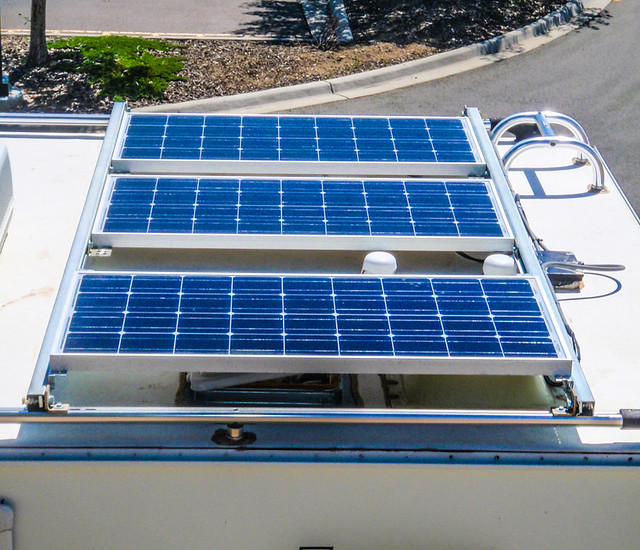Shiltsy
Mar 24, 2014Explorer
Recommendations for solar setup
I have a Lance 825 truck camper that will be stored outside without electrical access starting this spring. I'd like to setup a solar system that will charge the batteries while in storage. I have all LED interior lights, no TV, no electric coffee maker, no AC, etc, so when I boondock I can easily make the battery last for 3-4 days. Space on the roof is limited because of a Thule cargo carrier and vents, so I'm really just looking for the most efficient panel that will keep my single 12 volt deep cycle charged during storage.
Love to hear your suggestions. I'm not afraid to spend some money for the right system including a controller.
Thanks!
Love to hear your suggestions. I'm not afraid to spend some money for the right system including a controller.
Thanks!

